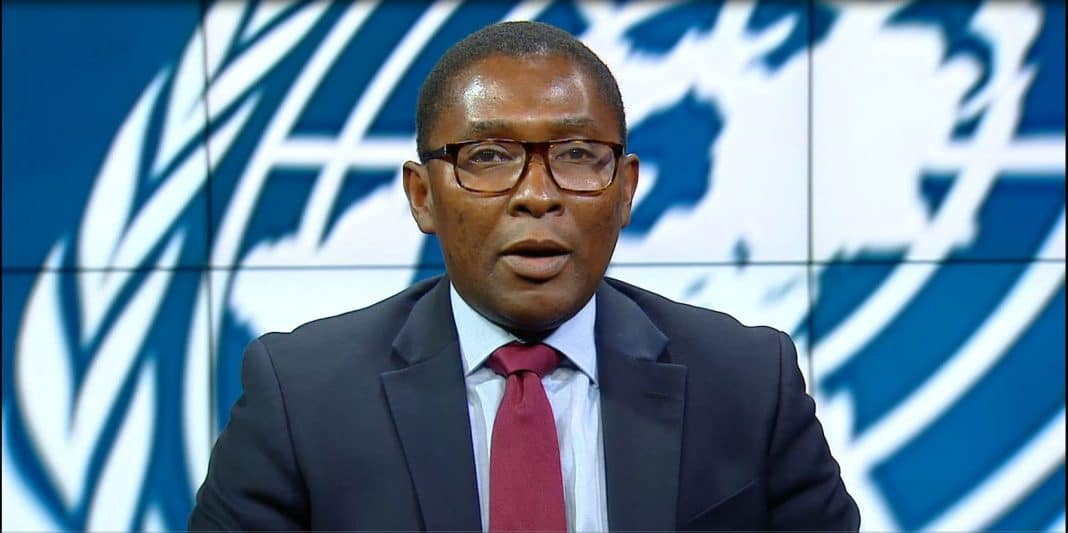Australia must phase out coal by 2030 to avoid catastrophic climate change and major disruption to the economy, the United Nation’s top climate adviser told an ANU conference yesterday. But if it does so, Australia could enjoy even greater economic prosperity.
Mr Selwin Hart, Special Advisor to the UN Secretary-General on Climate Action, addressed the 2021 Crawford Leadership Forum at the Australian National University.
The two-day online forum, held on Monday and Tuesday this week, brings together political, business, public sector and academic leaders to address the major geopolitical and economic challenges facing the world.
“The world is way off track from meeting the 1.5 degree Celsius goal of the Paris Agreement – a critical threshold for preventing the worst impacts of climate change,” Mr Hart told the forum.
“A prerequisite of keeping the 1.5oC goal within reach is the urgent global phase-out of coal.
“Market forces alone show coal’s days are numbered, as many investors increasingly abandon it in favour of renewables, which are now cheaper in most places. The growing expectation of stranded coal assets is hastening coal’s decline.
“However, this shift is still not happening fast enough to avert a global climate catastrophe.”
Mr Hart noted that coal and other fossil fuels had been an important part of the Australian economy, “even if mining only accounts for a small fraction – around two per cent – of overall jobs”.
“But it’s essential to have a broader, more honest and rational conversation about what is in Australia’s interests, because the bottom line is clear,” Mr Hart said.
“If the world does not rapidly phase out coal, climate change will wreak havoc right across the Australian economy: from agriculture to tourism, and right across the services sector. Similarly, construction, housing, and the property sector, in a country where the vast majority live on or near a coastline; it will be even more catastrophic in your neighbourhood.”
Australia was among the places already hardest hit by climate change, Mr Hart said. Temperatures were 1.4 degrees hotter than a century ago; and sea levels were rising faster than the global average, placing the lives and livelihoods of coastal communities at greater risk. Fire seasons were also longer and more intense.
“If the world does not boost climate action urgently, Australia can expect climate disasters, such as droughts, heat waves, fires and floods to get more frequent and severe,” he warned.
In his address, Mr Hart made it clear that the United Nations did not call for a phase-out of coal “overnight”. According to the UN Secretary General, António Guterres, OECD countries like Australia should aim to phase out coal by 2030.
“If adopted, this timetable would leave nearly a decade for Australia to ensure a just transition for its coal workers and others affected,” Mr Hart said.
“More broadly, this shift from grey to green economies presents vast opportunities: to drive prosperity, productivity, more and better jobs, and inclusive economic growth.
“Globally, investments in renewables generate three times more jobs than investments in fossil fuels.”
Australia’s farsighted economic reforms had led to some of the highest living standards in the world, Mr Hart said.
“We are at a critical juncture in the climate crisis,” he warned. “If G20 countries, including Australia, choose business as usual, climate change will soon send Australia’s high living standards up in flames.
“By contrast, if countries – including Australia – choose bold climate action, a new wave of prosperity, jobs, fairness and sustained economic growth is there for the taking.”
Mr Hart welcomed the 2050 net zero commitments of all states and territories of Australia, and the support for 2050 net zero targets from peak business bodies such as the National Farmers Federation, the Business Council of Australia, and the Australian Industry Group, and many of the country’s largest businesses.
For more news:



